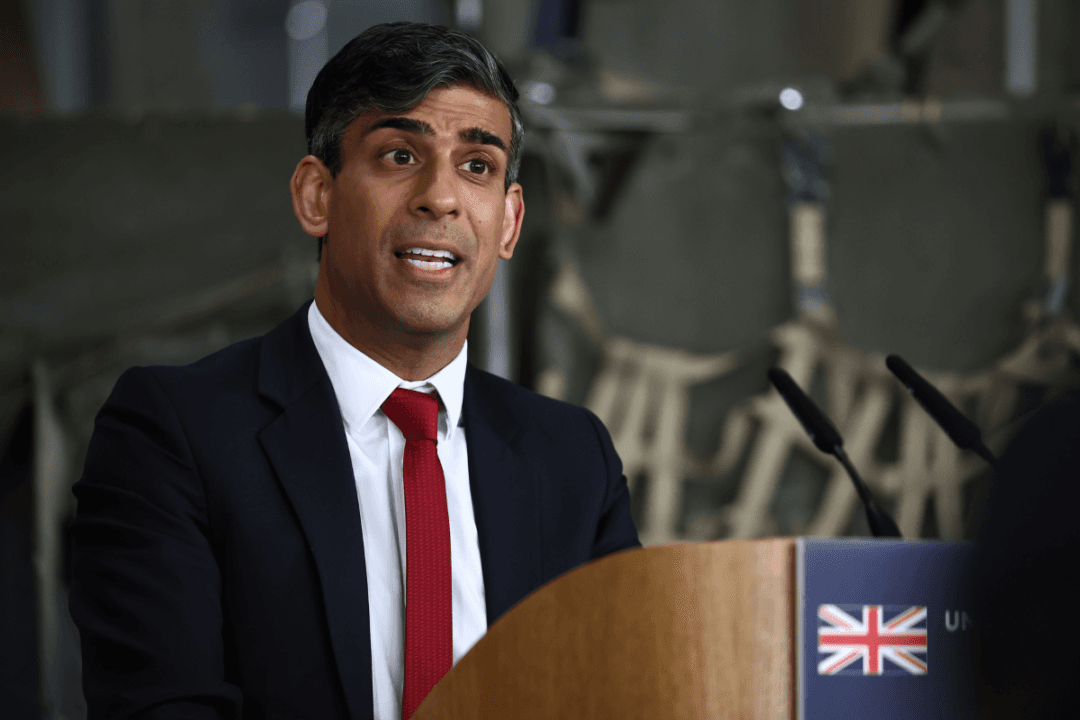Prime Minister Rishi Sunak has committed the UK to spending 2.5 percent of its GDP on defence by 2030, the biggest increase in defence spending in a generation.
The prime minister made the pledge during a visit to Poland on Tuesday, confirming the defence budget would receive an additional £75 billion over the next six years as he warned that the world was “the most dangerous it has been since the end of the Cold War.”





